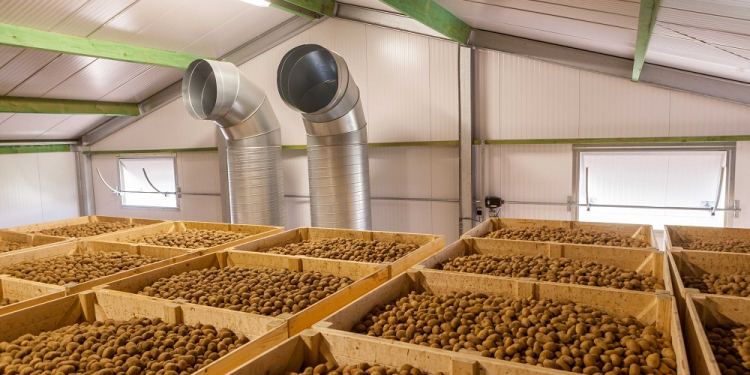For a successful potato industry that will bring about impact at household and national levels, a continuous production and storage of potatoes is indispensable. This will enable availability of potatoes for fresh consumption and processing throughout the year, improving food security and income of the growing population. To have a sustainable potato processing, a constant supply of good quality raw material all-year round is a pre-requisite. This will require producing potatoes two to three times a year and having good cold storage facilities. The SSA region has suitable agroecologies with bimodal rainfall, making multiple productions per year possible, particularly if there is access to irrigation.
Forced by the growing population that needs to be fed on same or less arable land, governments in SSA are planning to reduce dependence on rain fed agriculture by increasing production area under irrigation. For example, Ethiopia is planning to expand irrigated agriculture from the current 2.7 million ha. to 4.1 million ha before the end of its second (current) Growth and Transformation Plan (GTP II, from 2015/16 to 2019/20). Potato being a suitable crop for irrigation coupled with its high potential to produce more dietary energy than any other major food crop for every cubic meter of water applied, it will be prioritized for production under irrigation in GTP II. The country has mapped its ground water that can be used for irrigation together with other water resources such as rivers, rain water, etc. Although progress is found at different stages, most countries in SSA have plans to produce increasingly more under irrigated agriculture, where potato stands a very good chance of being one of the crops that will be considered.
Kisima Farm produces seed potato twice a year on about 100 ha per season. Since it has ultra-modern cold storage with a capacity of about 1000 tons, it can make available large quantities of certified seed potato almost throughout the year. The cold storage ensures that postharvest losses, disease infections and insect damage are kept to the minimum. High seed quality is probably the main reason why further seed multiplies that procure seed from Kisima are reporting high productivity rates. Farmers access to quality seed from smallholder seed producers who grow certified seed from Kisima improves availability of potato for fresh consumption and processing.







